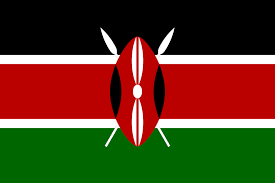.jpg)
The Union Cabinet of India has approved the draft of the Digital Personal Data Protection (DPDP) Bill 2023. The bill is likely to be tabled in the upcoming monsoon session of Parliament, which begins on July 20. The DPDP Bill is a comprehensive piece of legislation that seeks to protect the personal data of individuals in India. The bill defines personal data as any information that can be used to identify an individual, either directly or indirectly. It also sets out the rules for how personal data can be collected, used, and shared.
The bill includes a number of provisions that are designed to protect the privacy of individuals. For example, it gives individuals the right to access their personal data, the right to correct their personal data, and the right to object to the processing of their personal data. The bill also includes provisions for data portability and for the establishment of a Data Protection Authority.
The DPDP Bill is a significant step forward for data protection in India. It is the first comprehensive data protection law in India, and it is based on international best practices. The bill is likely to have a significant impact on the way that personal data is handled in India.
Key highlights of the DPDP Bill:
- The bill defines personal data as any information that can be used to identify an individual, either directly or indirectly.
- The bill sets out the rules for how personal data can be collected, used, and shared.
- The bill gives individuals the right to access their personal data, the right to correct their personal data, and the right to object to the processing of their personal data.
- The bill includes provisions for data portability and for the establishment of a Data Protection Authority.
- All online and offline data will fall under the legal domains of this bill.
- The bill imposes penalties for violations of the law, up to Rs 250 crore.
- The drafted bill aims to provide consent based data collection technique.
Impact of the DPDP Bill:
The DPDP Bill is likely to have a significant impact on the way that personal data is handled in India. The bill will provide individuals with more control over their personal data, and it will make it more difficult for companies to collect and use personal data without consent. The bill is also likely to lead to increased investment in data protection compliance in India.
Next steps:
The DPDP Bill is still a draft, and it is not yet clear when it will be passed into law. However, the approval of the bill by the Cabinet is a significant step forward, and it is likely that the bill will be passed into law in the near future. Six years after the Supreme Court declared privacy as a fundamental right, the law will become India’s core data governance framework.
Conclusion:
The DPDP Bill is a landmark piece of legislation that will have a significant impact on data protection in India. The bill is based on international best practices, and it is likely to lead to increased privacy protection for individuals in India.
India's journey towards enacting comprehensive data protection legislation draws inspiration from international precedents, notably the European Union's General Data Protection Regulation (GDPR) implemented in 2018. Emulating the GDPR's principles, India's proposed legislation aims to empower individuals with control over their personal data, enforce explicit consent for processing sensitive information, and establish stringent penalties for data breaches. By adopting global best practices, India seeks to fortify privacy rights and enhance data security in the digital landscape.

 +91 9594449393
+91 9594449393 +1 4847906355
+1 4847906355 +63 9208320598
+63 9208320598 +44 1519470017
+44 1519470017 +84 908370948
+84 908370948 +7 9639173485
+7 9639173485 +62 81808037776
+62 81808037776 +90 5441016383
+90 5441016383 +66 993367171
+66 993367171 +254 725235855
+254 725235855 +256 707194495
+256 707194495 +46 700548490
+46 700548490.jpg)
.jpg)
.jpg)
.jpg)